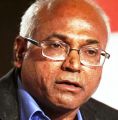We will be celebrating V.P. Singh’s 93rd birth anniversary on 25 June 2024. This was the man who, as prime minister for just 11 months, changed the course of this nation’s history. After him, there have been prime ministers who ruled the country for six years (Atal Bihari Vajpayee), 10 years (Manmohan Singh) and more than 10 years (Narendra Modi). But their long tenures did not make any major difference to the lot of the historically oppressed Shudras, Dalits and Adivasis. In fact, Narendra Modi’s 10-year rule sent a chill down their spines.
The fear of reservations being abolished and the very Constitution – which Ambedkar put in place with a vision of social change – being changed forced them to fight the RSS/BJP in the recently concluded parliamentary elections.
Giridhari Yadav, a Janata Dal (United) MP from Bihar, took the initiative to organize a commemoration meeting on V.P. Singh’s birth anniversary last year. This year, he is leading the initiative again, in association with Truthseekers International headed by Sunil Sardar and the Students’ Federation of Dravidians. V.P. Singh’s 93rd birth anniversary commemoration meeting will be held on 25 June 2024 (tomorrow) in the Constitution Club, New Delhi.
V.P. Singh has no political promoters and memorial builders because, as prime minister, he broke the brahmanical myth of merit. The brahmanical upper castes and their organizations like the Rashtriya Swayamsevak Sangh (RSS) are still unable to digest this small-time Kshatriya ruler’s blow to Dwija hegemony in modern times. Interestingly, this unusual leader emerged from the same Uttar Pradesh, from where Yogi Adityanath, a kind of anti-reservation Kshatriya leader, emerged. On being elected chief minister after the 2017 Assembly Elections, Adityanath washed the chief minister’s official residence in Lucknow with Ganga water before entering the building, because the previous occupant had been the young Shudra leader Akhilesh Yadav.

Indian judiciary and the myth of merit
The Indian judiciary is still fighting to protect that myth of merit, proof of which is the recent Patna High Court judgment in favour of a petition that sought the revocation of the Bihar government’s decision to increase the total reservation quota in Bihar from 50 to 65 per cent based on the caste survey results released last year.
The myth of brahmanical merit has its roots in the Rig Vedic ideology of varna system, which stipulates that only a Brahmin is eligible for reading and reciting Vedas. The Hindu spiritual system revived by the RSS and its affiliate the Bharatiya Janata Party (BJP), under the leadership of a so-called OBC prime minister, has put the clock back on reservations.
It is an irony that V.P. Singh, a Kshatriya, wanted to break that historical myth but Narendra Modi, an OBC, is willing to undercut the social justice era initiated by Singh by implementing the Mandal Commission Report. Imagine if Narendra Modi had been prime minister in 1990 instead of V.P. Singh, no Mandal reservation would become available to Shudra/OBCs. In fact, Modi promoted Ram Mandir ideology to oppose Mandal reservation when V.P. Singh implemented it.
Interestingly, the Mandal reservation also became the main protector of the Indian Constitution in the face of a threat from the present RSS/BJP regime. Across the country the OBCs, Dalits and Adivasis felt that if this regime returned for a third term with an outright majority in Parliament, it would pose a threat to reservations and to the very Constitution.
Fortunately, under the leadership of Mallikarjun Kharge, a Dalit and the president of the Indian National Congress, and Rahul Gandhi, who calls himself a Brahmin, the opposition parties realized this threat and took a strong position in defence of both the Constitution and reservation. The Indian National Developmental Inclusive Alliance (INDIA) stood united in warding off this threat.
In the 18th Lok Sabha elections, this threat galavanized the reservation forces to protect the Constitution and reservation ideology and reduced the RSS/BJP to 240 seats. A strong opposition committed to the reservation ideology is in Parliament today.
In this context, commemorating the man who went against his caste culture and stood with the reservation ideology is important. V.P. Singh ought to be a role model for the Dwijas, but they have failed to understand his commitment to constitutionalism and social change. One hopes they too will begin to celebrate his life and social-justice vision for preserving this great nation and constitutional democracy.
(Read the Hindi translation here.)
Forward Press also publishes books on Bahujan issues. Forward Press Books sheds light on the widespread problems as well as the finer aspects of Bahujan (Dalit, OBC, Adivasi, Nomadic, Pasmanda) society, culture, literature and politics. Contact us for a list of FP Books’ titles and to order. Mobile: +917827427311, Email: info@forwardmagazine.in)





